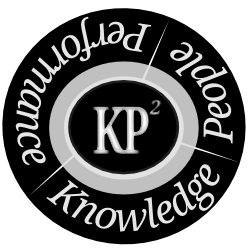At my school, the German Graduate School of Management and Law (GGS), we’re organizing a series of seminars called Methods in Business Research. We’re aiming to hold these seminars about two times a year. This year we had Steve Borgatti (University of Kentucky), giving a seminar on Social Network Analysis, for example. For one of the seminars in 2016, we’ll have Professor Ann Langley from HEC Montréal. Ann will be teaching her course ‘Reading, Doing & Publishing Research in Strategy & Management’ from April 4-7, 2016, in Heilbronn, Germany. Ann’s a great scholar, a fabulous teacher, and a very nice person to work with. I know this because I was fortunate enough to have taken her course during my stay at McGill University last winter. I can thus highly recommend it. You can find more details below. Continue reading Strategy Seminar with Ann Langley from April 4-7, 2016
Tag: research
My Top 4 Articles for 2013
Given that the year 2014 is coming to an end, I asked myself the other day which recent papers have influenced my thinking and writing this year. First on the list is the MISQ special issue by Bharadwaj et al. (2013). In the paper, the authors attempt to bring together the strategy and information systems literature and emphasize the strategic role of information technology in organizations. Next, there’s the ISR special issue by Aral et al. (2013) on social media and business transformation, which sheds light on the transformative power of social media technologies as a specific class of information technologies. Third on the list is Treem & Leonardi’s (2013) book chapter on social media affordances, explaining how social media technologies differ from previous forms of computer-mediated communication and what kind of actions they facilitate. Ultimately, there’s Wang et al.’s (2013) OS paper, which highlights the competitive nature of online groups as they compete for members’ attention and time. Continue reading My Top 4 Articles for 2013
Social Media for Research
I’ve been using social media for professional purposes for a number of years now. During this time, I’ve had several conversations with colleagues over lunch and on other occasions about why I do what I do and what I get out of it. To date, I’ve not written these thoughts up (although some conversations have been converted into blog posts on this site). Recently, I’ve come across a presentation by Ian McCarthy, who’s a Professor at Simon Fraser University, which does exactly that. In his presentation, Ian reflects on how he uses social media for academic purposes. Interestingly, he does so with help of an article he’s recently published in the journal Business Horizons. Now, that’s applied research 😉 You can find his presentation embedded below. For my German readers, here’s a related presentation by my colleague Alexander Stocker entitled ‘Why research institutions should be using social media’.
Berlin: A Research Opportunity
Although I currently live and work in Heilbronn, in South West Germany, I do keep an eye on what is happening in the Berlin area, where I was raised. Apart from the disastrous news about the new airport, Berlin has recently received some very good press exposure regarding its technology and start-up industry, e.g., in the The Economist, and on TechCrunch. As Ciaran O´Leary from TechCrunch, puts it: Continue reading Berlin: A Research Opportunity
Ways to Use Copyrighted (Academic) Content for Blogging
While working on a blog post the other day, I asked myself (once again) how academic material taken from (copyrighted) journals and books, may be used (legally and appropriately) by researchers like myself. I’ve attempted to find an answer to this question on various occasions, but it seems that every publisher has guidelines on its own. Asking a law professor at our business school brought some relief. I further contacted a few publishers via Twitter and I’ve been pleased with the responsiveness of Oxford University Press, for example. However, their clearance process is too cumbersome to work with in practice. On the same day, I discovered a very useful guide published by Elsevier: Ways to Use Journal Articles: A Practical Guide. Posting the link to Twitter, it was re-tweeted several times, an indicator of its usefulness to other researchers, I suppose. Therefore, I decided to include the link to the guide on my blog and add an abstract of the relevant section below. If you come across similar documents, please drop me a line. I would surely like to have a look at them.
Anyone may in written work quote from an article published by Elsevier, as long as the quote comprises only a short excerpt such as one or two sentences. An appropriate citation, including the journal title, must be provided. If the intended use is for scholarly comment, noncommercial research or educational purposes, an institution or academic may, without seeking permission from Elsevier, use:
- a single text extract of fewer than 100 words or a series of extracts totaling no more than 300 words
- a maximum of two figures from a journal article or a total of five from a journal volume
These guidelines reflect Elsevier’s endorsement of the International Association of Scientific, Technical & Medical Publishers’ 2008 guidelines for quotation and other academic uses of excerpts from journal articles. Find more details on these guidelines at www.stm-assoc.org/document-library/ (see Guidelines for Quotations from Journal Articles).

